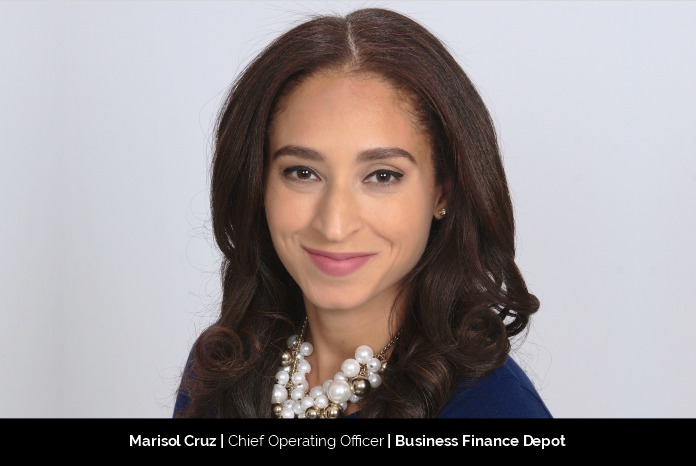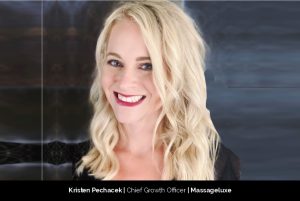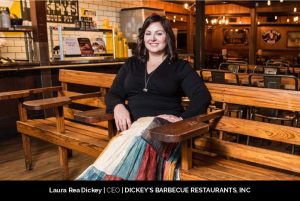Marisol Cruz: Revamping the Finance Industry with New Ideas
The 10 Most Influential Women Revamping the Future in Franchise 2021

The appropriate financing for any business will vary
considerably based upon the $ amount of capital required. This article
offers an overview of the best financing available based upon the amount of
money required to properly capitalize any given business.
Financing a Business for $350,000 or Less
Introduction
In 2014, the Small Business Administration (SBA) introduced
the Small Loan Advantage loan program some lenders refer to as the SBA Express
loan. After the “The Great Recession”, many homeowners lost their real
estate equity which is used as collateral requirement for a SBA 7(a) loan
approval in most cases. Consequently, many perspective borrowers were
unable to secure financing because they lack the equity in their home required
to collateralize their loan request. The SBA Express loan is capped at
$150,000 to limit the lender’s risk since the borrower’s real estate collateral
is not required and business assets are used to collateralize the SBA Express
loan. Since the collateral used to secure an equipment lease is the equipment
being financed and the collateral for the SBA Express loan is the equipment
needed to operate the business, these 2 debt financing products are compatible!
Capital Leases – Leasing Equipment to Own
The most common financing option for the equipment needed to
operate any business is a capital lease. The main purpose of a capital lease is
to finance the equipment purchase while preserving the owner’s working
capital. Franchisees can finance the purchase of their proprietary
equipment, security systems, computer hardware & software, flooring,
outdoor signage and other tangible items needed to run the business using an
equipment lease. The owner(s) are required to personally guarantee
equipment lease. The required down payment ranges from a lease payment up to
20% of the amount financed. Lease documentation fees may range from $95 to
$495. Repayment terms typically range from 12 months up to 60 months. All
payments are tax deductible, so these payments will lower business’s taxable
income and, in turn, tax liability. Since the plan is to keep their equipment
long term, a typical capital lease offers a $1.00 end of term purchase option.
Small Business Administration (SBA) Express Working
Capital Loan
This government backed loan is designed to provide up to
$150,000 of working capital to support the company until the business generates
positive cash flow. The loan process 90 days to complete before the loan is
funded. The SBA Express loan approval requirements are good personal credit
& some liquid assets and the loan process requires attention to
detail. If the use of the loan funds is to finance a new location, the
loan can be approved in advance, however the funds will not be distributed by
the bank until the new location has received a certificate of occupancy.
This insures that the money will be used to operate the new business & will
not be used to pay for build out expenses. The interest rate for this loan is
calculated by starting with the prime rate as published in the Wall Street
Journal which is currently 5.5%. The bank charges a 2.75% risk premium on this
loan so the interest rate is 8.25% now. The repayment term is 10 years and
there is no pre-payment penalty so if the franchisee is extremely profitable,
the loan can be prepaid to save interest expense.
Conclusion
In conclusion, equipment leases and SBA Express loans are
complementary products that will enable the owner of a business with good
personal credit to finance the opening and expansion of a franchise. The
best part about this financing combination of a SBA Express loan &
equipment lease is that the collateral is your business assets… not your home …
just your business assets!
Financing a Business for $350,000 or More
The SBA 7(a) Loan up to $5MM will provide financing ranging
from 70% to 90% of the total project costs which typically includes the
equipment, franchise rights (if any), organization costs, location buildout,
deposits, inventory & operating working capital. The owners’ equity
injection ranges from 10% to 30% of the total project cost and cannot be
borrowed money such as a home equity loan. The borrowers must provide their
resume(s) demonstrating industry experience, transferable management skills
and/or related education. The collateral for the loan includes all business
assets. Additional collateral is often required which is typically residential
real estate only up to the loan $ amount. Good personal credit is required.
The loan repayment term is 10 years. A prepayment penalty,
if any, typically ranges from 1-4% over the initial 4-year term. The interest
rate is typically prime rate as published in the Wall Street Journal (5.5%)
plus a risk premium typically 2.75% so the current rate offered is 8.25%.
Closing Costs are approximately 3.5% of loan amount and are usually added to
the loan amount.
Real Estate Acquisition
The SBA loan up to $5MM will finance up to 90% of the real
estate acquisition cost. The owners’ equity injections are typically 10% of the
acquisition cost of the real estate and cannot be borrowed money such as a home
equity loan. The business must occupy at least 50% of the useable space which
provides an opportunity to lease out up to 49% of the useable space. The
collateral is real estate being purchased. Good personal credit is
required. The loan repayment term is typically 25 years. The loan is
fully amortized with no balloon payment. The interest rate is calculated
starting with the prime rate (5.5%) plus a risk premium typically varies from
1.5% up to 2.75% based up the appraisal and the strength of the borrower. The
closing cost is typically 3.5% of loan amount added to the amount financed at
closing. The timing to close is 90 days and varies with bank work load, time
for real estate appraisal & borrower responsiveness.
Conclusion
There are many benefits of the SBA 7(a) loan program to
finance a new or expanding business. The business owner will have only one
monthly debt payment amortized over the longest repayment term available with
no significant prepayment penalty. The use of funds is nearly unlimited
to any legitimate business purpose. Since the SBA 7(a) loan is backed by the
federal government so it offers the best chance of an approval at the lowest
APR available. Consequently, we recommend you strongly consider this form of
financing for the wide variety of uses that this flexible loan product offers
for business financing.
Paul Bosley, Managing Member
Businessfinance.com
Toll Free (800) 788-3884
www.businessfinancedepot.com












